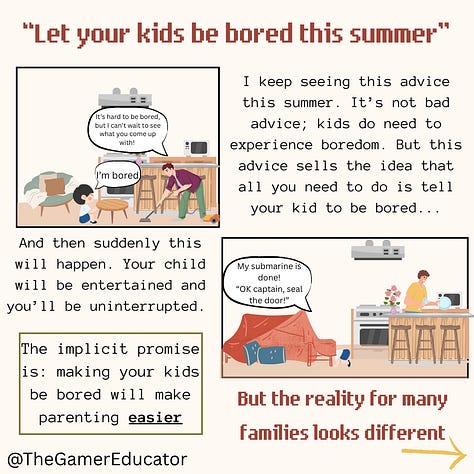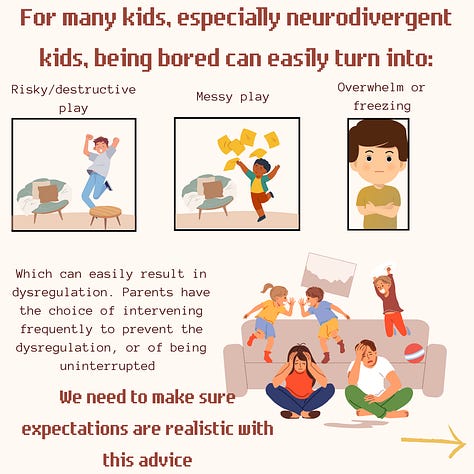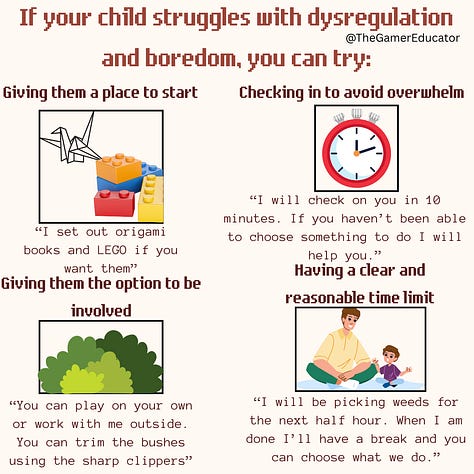The problem with "let kids be bored" advice
It's not as simple as it sounds...



I'm seeing a lot of calls for letting kids be "bored" particularly this summer. Don't get me wrong, I think it's important for kids to be bored! But, I think this is a very simple sounding suggestion that is actually really difficult for many families to implement.
Many kids may complain when being bored, or struggle to find something to do. But some kids, particularly those who may be neurodivergent, can find boredom extremely dysregulating. Other ND kids may freeze or feel overwhelmed when bored- there is both nothing to do, and so many options at the same time- and may do nothing for a prolonged period of time.
When an adult says "find something to do if you're bored" we imagine they will do SOMETHING. But if they freeze or are overwhelmed and we see them sitting and staring into space, or lying on the floor zoning out, that may not be what we had in mind. What an adult often means is "find something to hold your attention so that I don't have to" which is a reasonable request for many older school aged children.
But if boredom is a fast pass to dysregulation, then many caregivers face the difficult choice of having to micromanage or hover over their "bored" children, or face the difficult dysregulation that may result if they do not.
If being bored is dysregulating for your kids, see the last slide for some ways you can get them started in choosing something to do. And remember, if you aren't comfortable letting your kids be bored as much as you'd like because of the mess or dysregulation that results, you aren't doing anything wrong; you're finding ways to make boredom a workable part of your kid's lives.

YES. Thank you for naming how much extra work it can make for caregivers to “let kids be bored.”
Thank you so much! It’s been shocking to see this message as someone trained in child and adolescent therapy. Boredom is what led to so many people I’ve worked with struggling with substances and illness. Freedom and disconnecting from electronics is so different than boredom. Thank you!